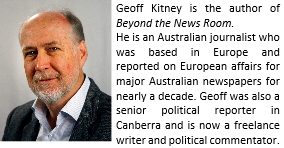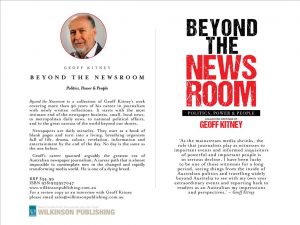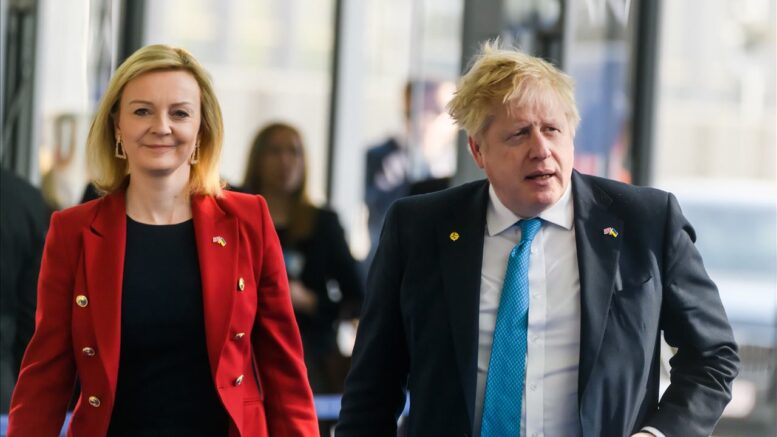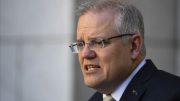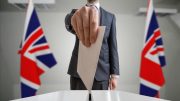Trade experts warned from the outset that Boris Johnson was putting his ambition ahead of the reality of Britain’s ability to negotiate deals, writes Geoff Kitney.
When Boris Johnson set out to sell the case for Brexit, he promised to deliver a “back to the future” outcome of extraordinary ambition. Brexit, he said, would return Britain to its historic mission of being a trade superpower.
He painted a vision of Britain stepping out of the chains of European Union protectionism to lead the world in opening borders and freeing trade, a sure route, he declared, to higher rates of economic growth than had been possible as a member of the EU. He gave it a name – Global Britain.
So, four years after Brexit and now with Boris Johnson’s political career having crashed and burned, how much progress has been made?
The truth is, not very much.
As a global trade power, Britain is worse off now than it was when it was a member of the EU.
Outside the EU, Britain has found itself to be more beggar than booster.
The centrepiece of Johnson’s plan to make cutting trade barriers the key to Britain’s future prosperity – free trade agreements with all the world’s great markets – has come to almost nothing.
The UK has secured membership of the large Pacific trade agreement – the Comprehensive and Progressive Agreement for Trans-Pacific Partnership – but this will have very limited economic benefits for the UK. The government estimates it will add 0.08 per cent to GDP over the long term.
But only two high profile bilateral FTA’s have been signed – with Australia and New Zealand. In both cases, Britain has been forced to play a weak hand. Australian officials openly boast that in their negotiation with Britain “we took them to the cleaners”.
If UK farmers were still part of the EU, it is highly likely they would have been better off than they are going to be under the Australia-UK FTA.
British farmers are angry about the ease with which Australia managed to open wide the doors to UK agricultural product markets.
Australian officials have confirmed a report on the online news site Politico that this was largely due to Johnson himself who, the report said, was so keen to secure a symbolic early FTA with Australia that he “was willing to give them the whole shop”.
But for some last-minute hard bargaining by British officials, the deal would have been worse for British farmers than the final deal which they believe sold them out.
In fact, Johnson said he believed Britain should be prepared to give Australian farmers a generous deal because of the way the UK had “let them down by joining the EU in the first place”. Britain’s entry into the EU effectively closed Australia’s traditional UK markets for agricultural produce.
Johnson’s nostalgia contributed to producing a deal which the House of Commons Library has calculated will result in an increase in economic value of just 0.08 per cent (equivalent to just £2.3 billion) by 2035. It has been estimated that the deal will result in savings in supermarkets for British shoppers’ equivalent to just one pound a year.
Johnson clearly wanted a rapid result from the UK-Australia Free Trade Agreement as an early pointer to the route he had argued would lead Brexit Britain to a prosperous future via freer trade.
This became more urgent because of the failure of the United States to take up his offer to negotiate an early FTA for more open access to its huge economy – something he promised would be the key to opening the door for a Global Britain. The US was always reticent to take up Johnson’s proposal and has become more so as protectionist pressures have grown in the US.
There now appears to be little chance of a UK-US FTA in the foreseeable future.
Instead, the US has given the UK a consolation prize – the recently signed Atlantic Declaration. However, this has been described as more a “mutual protectionist” agreement rather than a free trade agreement as it involves a series of mini-economic deals intended to exclude other countries (most notably China) from strategic product markets.
The signal this sends appears to be that Johnson’s “revive our great trading nation” rhetoric has now been seen as just that – rhetoric.
A fundamental problem with Johnson’s “vision” was that Britain was always going to be vulnerable to having to accept deals well short of what he argued they could deliver.
Johnson actually seemed to have very limited understanding of the potential of FTAs’ which, around the world, have increasingly been seen as more likely to deliver selective protectionism rather than genuinely open markets.
Trade experts also warned from the outset that Johnson was putting his ambition ahead of the reality of Britain’s ability to negotiate deals. They pointed out that Britain had very little trade negotiation expertise, given that trade policy while Britain was in the EU was conducted from Brussels by highly trained and experienced EU trade officials.
Australian trade officials contrast the ease with which Australia out-flanked the UK in the FTA negotiations with the battle now underway between Australian and EU officials to finalise an Australia-EU FTA. After years of negotiations Australia is still battling to gain what it believes is reasonable market access for a wide range of products and services in European Union markets. “They are tough nuts,” one source involved in the negotiations told Chief-Exec.com.
Access to EU markets for farm products for Australian farmers seem likely to fall well short of the dream deal Australian officials achieved with the UK. In other words, if UK farmers were still part of the EU, it is highly likely they would have been better off than they are going to be under the Australia-UK FTA.
A fundamental problem with Johnson’s “vision” was that Britain was always going to be vulnerable to having to accept deals well short of what he argued they could deliver.
Like so much that was promised by Johnson and the Brexiters, the reality in trade policy has so far fallen way short of the rhetoric.
With so little progress so far for Johnson’s promise of a Great Trading Nation, the House of Commons has announced that it will establish a cross-party parliamentary inquiry into the impact of the Conservative government’s post-Brexit trade policy, particularly on food producers, consumers and UK business.
Boris Johnson and his Brexit cheer squad are probably not going to like its conclusions.
Headline image: Conservative Party Prime Ministers (2022) Liz Truss and Boris Johnson. Credit: Gints Ivuskans/Shutterstock.com
